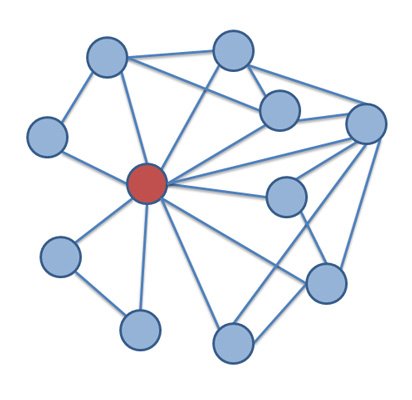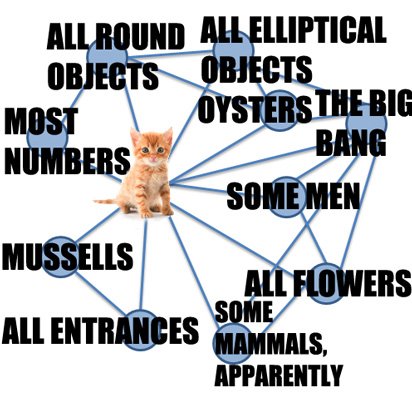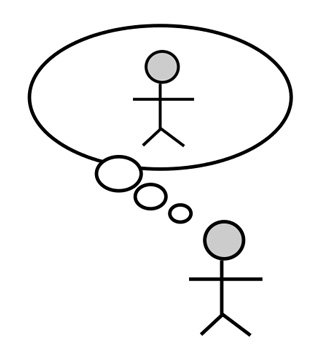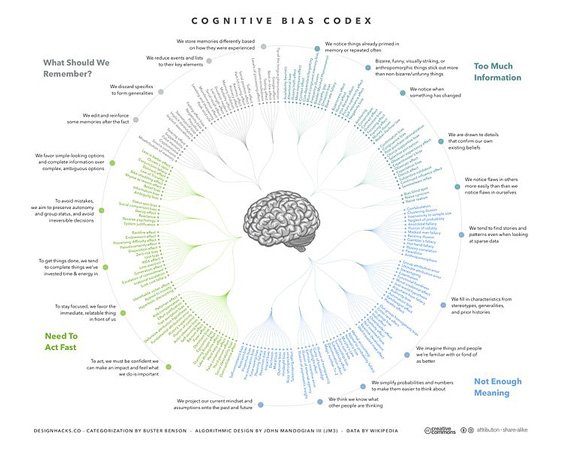
The Chinese phrase for "talking past each other" is "chicken talking to a duck".
Source: Clker-Free-Vector-Images & Clker-Free-Vector-Images w/ CC0 Creative Commons license, modified.
Curtain Open
If you've ever been one half of a romantic couple for any amount of time, or if you've ever argued with a member of the opposite sex, you might've had the feeling that you were talking past each other.
Turns out, that feeling can be somewhat corroborated by science — at least when the subject under discussion (or disagreement) is sex.
Like a long jumper, let's back up a bit before we go forward. It was long known in the sex differences literature that men hold more permissive attitudes toward sex than women[1]. How might this lead to conflict or failed communication?
Well, consider specifically the sex differences in attitudes toward casual sex. There was a large study that asked college students "What would be your motives for having sexual intercourse?"
First, here's typical answers from the females:
• My motives for sexual intercourse would all be due to the love and commitment I feel for my partner.
• To show my love for my partner and to feel loved and needed.
• Love, to feel loved, to express love to someone.[2]
And here's the males:
• Need it.
• To gratify myself.
• When I'm tired of masturbation.[2]
The author of the study notes:
Coming to a sexual encounter with such different attitudes and motivations, it is not surprising that there is male-female conflict. In extreme cases, date rape is the result.[2]
That escalated quickly.
But these are just self-reports, you might say. Not exactly the gold standard of science. "Rigorous" is probably not a word you'd use to describe it.
I opened this section, however, by claiming that science can somewhat confirm that males and females talk past one another when it comes to sex. How exactly science goes inside the head of males and females to witness (to the extent that that's at all possible) words and concepts having different meanings, is largely the topic of this post.
In the beginning was the Word

God's first act in Genesis was to speak, you see. And John is trying to establish that Jesus was that speech, present with God from the beginning, and identical with God. See here.
Source: John Snyder w/ CC BY-SA 3.0 license.
Much of human communication depends on language. I doubt this will be an aha moment for anyone, but that claim helps to understand why words being coded differently in male and female brains might lead to misunderstanding and sometimes conflict. It's not an accident that when God sought to sow conflict among peoples who were building the Tower of Babel in order to reach heaven, his first idea was to make them speak different languages.
Before I get to the first experiment, it will be handy to conjure up the image of some kind of traffic system. Could be actual roads or an internet network. More roads leading to a specific location make that location more central to the network. More links to a location make that location stronger (easier to order a pizza or call an ambulance).

Red node is where you wanna be if you're sick or hungry.
Source: Houl0078 w/ CC0 1.0 license.
Cognitive researchers study our mental networks by examining the links we have to certain words. It will be unsurprising, for example, that such research finds that heterosexual women and gay men have more links on words that name male genitalia, and heterosexual men and gay women have more links on words that name female genitals. Straight men also have more links between sexual slang words (and formal sexual words) and positive words.[1]

All roads lead to kittens, if you're a heterosexual male.
Source: Ozan Kilic w/ CC BY 2.0 license & Houl0078 w/ CC0 1.0 license, modified.
But what's the empirical methodology behind prising out which words have more links leading to them?
Well, there's several ways to do it, but one I won't really go into involves a computer algorithm who goes by the name of Pathfinder, and whose job is to generate semantic networks. The results?
[W]omen had a more complex organization of knowledge for relationship-oriented words, whereas men were found to have a more complex knowledge organization for explicitly sexual words. [...] The findings [...] were consistent with sexrole stereotypes and demonstrate that men and women differ in how they organize information about sexual and relationship stimuli. The data strongly suggest that men and women often differ in the meanings assigned for identical words, particularly when those words are relevant to sexuality.[1]
Identical words assigned different meanings?!
Now's a good moment to revisit Socrates' adage that "the beginning of wisdom is the definition of terms". It was probably a lesson he learned from arguing with his legendarily quarrelsome wife, Xanthippe, who is immortalized in ancient Greek literature as "the hardest to get along with of all the women there are."[4]

Socrates is said to have chosen Xanthippe on purpose, for after honing his argumentative skills with her, he expected to be able to take on and make short work of any debating rival. Here Xanthippe is pictured in one of her favorite acts: dousing Socrates. Can't argue with that.
Source: Reyer van Blommendael w/ Public Domain license.
MEmory

Me thinking of me.
Source: MithrandirMage w/ CC BY-SA 3.0 license, modified & avail. under the same license.
Pathfinder is a little bit hard to explain in detail but I had to at least mention it.
A type of experiment much easier to fathom involves having subjects read a text and then ask them to recall what they read.
You see, what we perceive and remember says a lot about who we are. Humans do not just passively let any information get coded in their brain. Snakes will receive more attention than rocks, and women will receive more attention if you're a male and horny. I like to call this MEmory because we tend to remember things that have to do with our personal interests and cognitive biases.
And so one experiment had subjects read stories that were ambiguous as to their sexual content. By manipulating the titles of the stories so as to push subjects toward one interpretation, the researchers could then compare recall.
Men recalled the story more accurately when it was presented with an erotic title than with a nonerotic or no title.[1]
Note that besides gender, they also measured sex guilt and sexual experience, none of which gave meaningful results, making gender more pertinent than guilt and sexual experience when it comes to assimilating information of a sexual nature!
And there are two other conditions that influence the way you process erotic information: they are called, rather circularly, erotophilia and erotophobia. Erotophiliacs are people Cupid likes to shoot with his arrow, and erotophobics are people who developed an immunity. (This may not be the exact scientific definition.)

"Is that your quiver or are you just happy to see me?"
Source: Haiduc w/ Public Domain license.
But you know what influences the way you process erotic information more that these two? That's right: gender!
[E]rotophilia-erotophobia does not appear to be a dimension that exerts a significant influence on the way individuals process erotic information. Gender, on the other hand, appears to be a much more influential variable.[1]
Yes, that's how much gender influences our perception: more than phobias, guilt, and sexual experience!
But let's go back to memory. The last few years the public has been made much aware of how unreliable memories can be, via popular articles, legal cases, and so on. Memories, we all now know, are not photographs of what happened. The narrator is quite incapable of keeping his own motives out of the story. Our brains don't just respond to things: they select which things to respond to. And they add them when they're missing, like alien abduction stories.

It's unclear whether they are being sucked in or hosed out.
Source: Steve Jurvetson w/ CC BY 2.0 license.
In experiments investigating memory recall in males vs females, subjects were asked to recall the details from a story they read. Both males and females recalled sentences that did not occur in the stories: this is termed intrusion. But there was a difference in the nature of these intrusions:
[I]n comparison to women, men at both immediate and delayed recall exhibited more erotic intrusions and fewer romantic intrusions.[1]
That would explain why my partners sometimes claimed that I did or said or implied something romantic, when I'm pretty sure I did no such thing. And also why I think my partners did or said or implied something sexual, which they deny (I mean, this happens extremely rarely 🙄 )
Note: Some similar experiments have shown that men also have more romantic intrusions. So nevermind what exactly the details are or what they mean: the important thing is that sex differences are found.
Generally:
The results of these studies make it clear that the genders differ in their memory for sexual information.[1]
Biases
-.jpg)
List of cognitive biases, or a Snellen chart? You decide.
Source: Jm3 w/ CC BY-SA 4.0license.
Another experiment that's easy to wrap one's head around is the visual dot-probe task. You're basically flashed some information and then asked to indicate the position of a dot on a screen. Faster reaction times indicate greater vigilance to the preceding stimulus. These experiments have been used, for example, to investigate the biases of people with GAD (generalized anxiety disorder), who reacted significantly faster after being presented with threat words.
So what does the visual dot-probe task show when applied to sex?
Men were faster in making recognition decisions to erotic sentences, whereas women were faster in making recognition decisions to romantic sentences.[1]
It's to be expected, since a person attends to information relevant to his individual concerns!
This actually has a name: attentional capture. It's been shown for example that anxious people — much like this funny kitten — focus their attention on information relevant to their subjective fears (e.g. snakes but not cars).
And it's not just that we become more vigilant to things that concern us: we also attend to them for longer, thus enforcing our memory of them. And, if possible, we go back to them.

Our house had a double-decker that could take in a tape and copy it onto another one. I used to copy all my favorite movies that I rented from the local 'video club'. Could've made it into a business.
Source: DeeperThought w/ CC BY-SA 3.0 license.
The average male probably remembers how, as a teen, he used to rewatch the more explicit scenes in a movie. Since that was a harder process — called rewinding — in the age of VCRs, older males probably remember it better. So it seems less than surprising that something similar happens when reading literature:
[E]rotic sentences were read longer than neutral or filler sentences by all subjects[1]
This happens even at the level of the individual word: In an even simpler type of experiment than all of the above — called a lexical decision task (LDT) — which involves showing subjects a string of letters and just asking them whether it's a word, subjects were presented with nonword strings, neutral words, sexual words, and romantic words.
Both men and women took longer to make lexical decisions when the target was explicitly sexual. This delay was accentuated in women[1][my italics]
Curtain Close

Communicating, or shooting daggers at each other? You decide.
Source: Mitrohin 1914.jpg: Serge Lachinov w/ Public Domain license.
From dating advice columns to comedy skits to magazine article titles like "What he REALLY means" and "How to speak Menglish" to mock-technology like "The manslater" ("a revolutionary device that translates woman language into simple man words" — vid worth watching if you haven't come across it before), whole markets and lots of payrolls depend on the stereotype that women and men speak different languages.
As it turns out, some of that stereotyping is probably true.
None of the research is clear on why words and sentences are coded differently in men and women, just that they are. But that's all that's needed to back this post's claim that the sexes often talk past one another:
Gender differences in the organization of memory for sexual information suggest that the meaning of sexual words differs between men and women. This has important implications for communication between the genders.[1]
You can certainly see how these sex differences might lead to lack or understanding and misunderstanding and outright failure of communication in the personal realm, not to talk about conflict (harassment?) in the professional realm.
And since language is basic, this has implications for everything that's built on it:
The occurrence of a gender difference at such a fundamental level of cognition argues for the pervasiveness of these differences at all levels of the system.[1]
Note that all the cognitive sexual experiments I could find were performed by one person + some collaborator — Geer et al, essentially — which is why I cited mostly from a single large review (basically Geer talking about himself &Co. in the third person). This guy is hodl-ing the whole field to himself. There's no reason to doubt the research, but I thought it worth mentioning. It's really a niche, but an interesting one.
And knowing about it might help you navigate some of the communication difficulties of the festive season! Mirthful holidays, everyone! 🌟
Honorary mention
The title "sex and the sexes" was come up with by @insight-out when we were talking to — hopefully not past — each other under one of her posts.
REFERENCES
Geer, J. and Manguno-Mire, G. (1996). Gender Differences in Cognitive Processes in Sexuality. Annual Review of Sex Research, [online] 7(1), pp.90-124. Available at: http://dx.doi.org/10.1080/10532528.1996.10559910
Hyde, J. S. (1996). Where are the gender differences? Where are the gender similarities? In D. Buss & N. Malamuth (Eds.), Sex, power, conflict: Evolutionary and feminist perspectives. New York: Oxford Univ. Press. Available online at: http://www.oupcanada.com/catalog/9780195103571.html
Mealey, L. (2000). Sex Differences: Developmental and Evolutionary Strategies. 1st ed. Academic Press. Available online at: https://doi.org/10.1016/B978-0-12-487460-2.X5000-4
Wikipedia contributors. (2018, September 13). Xanthippe. In Wikipedia, The Free Encyclopedia. Retrieved 14:00, November 5, 2018, from https://en.wikipedia.org/w/index.php?title=Xanthippe&oldid=859405575
Wikipedia contributors. (2017, June 1). Pathfinder network. In Wikipedia, The Free Encyclopedia. Retrieved 13:44, November 5, 2018, from https://en.wikipedia.org/w/index.php?title=Pathfinder_network&oldid=783327553
Wikipedia contributors. (2018, October 19). Dot-probe paradigm. In Wikipedia, The Free Encyclopedia. Retrieved 14:50, November 6, 2018, from https://en.wikipedia.org/w/index.php?title=Dot-probe_paradigm&oldid=864770235
Wikipedia contributors. (2018, June 19). Erotophilia. In Wikipedia, The Free Encyclopedia. Retrieved 16:07, November 7, 2018, from https://en.wikipedia.org/w/index.php?title=Erotophilia&oldid=846531264
Wikipedia contributors. (2018, November 8). John 1:1. In Wikipedia, The Free Encyclopedia. Retrieved 12:27, November 9, 2018, from https://en.wikipedia.org/w/index.php?title=John_1:1&oldid=867856614
Earlier Sex Differences episodes:
11: Sex Drive: Fantasy Sex Is Where To Find Id
10: Sex Drive: Do Women Have More of Id?
9: The 70-year Cognitive Puzzle That Still Divides The Sexes
8: Do Transsexual Persons Have An Opposite-Sex Brain?
7: Do Parents Stereotype Their Children's Gender?
6: Sex Differences: Do females and males have different brains? Addendum
5: Sex Differences: Do females and males have different brains? Pt 3
4: Sex Differences: Do females and males have different brains? Pt 2
3: Sex Differences: Do females and males have different brains?
2: Sex Differences: Check out the gonads on that one!
1: Sex Differences: Does the Chromosome Maketh the Man?
steemSTEM is the go-to place for science on Steemit. Check it out at @steemstem or browse the #steemSTEM tag or chat live on discord and definitely visit www.steemstem.io
Have you voted for steemSTEM Witness?

You're back! I will save to read tomorrow, when I have the luxury of time.
Edit:
I've come back and have read the article through with care. There isn't a lot to argue with, although you know I do enjoy a good debate :) You build your case carefully. I think the points you make are valid and are important for people to remember when they try to negotiate heterosexual relationship minefields. If we all really did try to get along, rather than get what we wanted, there would be so much less trouble in the world (or at least between men and women). This would require thinking about what someone is saying, and not what we want them to say (echo of @abigail-dantes here).
I couldn't find the first citation you listed, but did find a relevant articlethat suggests why men may place a higher value on sex than women do. For one thing, women have a lot more at risk...this is a matter of evolutionary biology. Sex can result in pregnancy, and pregnancy can result in death. In an evolutionary sense, this is not an eventuality males have to consider. On the contrary, the more encounters males have, the more likely they are to propagate and insure the continuation of their genetic material. The article goes into a more complex discussion which I will not repeat, but the discussion is interesting and bears on your blog.
Your reference to semantics and misinterpretation is one I've given a lot of thought to, but not in relation to gender. Just generally. I notice how people talk past each other, often because they are using terms in different ways. Feminist, for example, is a rich example. What that word means to me is likely very different from what it means to you. But we don't talk past each other because we take the time to understand.
I won't try you with other points that come to mind. As usual, your blog is highly readable and provocative.
Yes, I'll talk a bit about the 'parental investment' theory in the next post.
Individuals definitely use their terms in different ways. But, like Wittgenstein says, there are still 'family resemblances' between different uses of the same word (otherwise all communication would fall apart). Feminists acknowledge the tag of war words suffer through: one of the roles of the patriarchy is to define words in the way men as a group see fit, with groups that have less power having literally little say over it.
Hi @alexander.alexis: Hope the holiday season is treating you well. It wore me out :)
As for feminism: I think for women of my generation, feminism has a particular meaning. It means exactly negating the authority of the patriarchy. The evolution of the term for me, and those of my generation (those of like mind, anyway), can be traced back to Simone de Beauvoir and down through Betty Friedan. We don't acknowledge the authority of the patriarchy to define a term that describes us. Or to describe behaviors that restrict us. The resonance of feminism in our lives has to do with the ability to earn money and to establish equitable relationships--both formal and informal. Somehow the term has taken on another meaning, one that most feminists from my generation would reject--hostility toward men.
In 1968, Shirley Chisholm was the first black female elected to the US Congress. She once said, “I have certainly met much more discrimination in terms of being a woman than being black, in the field of politics.”. This is the universe in which I grew up, and in which I embraced the term feminist. It was, and still is, all about equity and fair play.
Hope you don't mind my long explanation. I think there is so much confusion about feminism, that it's important to be clear when I, and many others, use the term.
Looking forward to your next blog. You discuss topics that are often overlooked and you do so with thorough research as a foundation.
Oh yeah I'm aware of many different forms of feminism, and it's indeed now very different from before. It used to be more about politics, even when it got to the personal realm it was mostly political, and now it's much less clear what's meant by it. To me it mostly means just be willing to talk and learn about gender issues.
Holiday season is good on my taste buds! :D
🙂 🍮🍴
Hahaha, this must be a good reason!
No wonder he invented the Socratic questioning - this must have been the only way to deal with that woman :D
Haha, yes, an illegal one :D
I surely see how @alexander.alexis is jumping into the field, too :D
A great article again, Alexander! I was all ears while I was reading it (ugh, this sentence doesn't make much sense :/ )
It only confirms my belief that men and women are different. We must be equal when it comes to civil rights but we are completely different when it comes to biology. I still remember your sentence about women objectifying themselves when it comes to sex ( I don't have the time to find it and quote it now). How I see it is that biology and culture mix a lot and a biological origin could be found for most cultural behaviors - including your favorite term when it comes to women: the "objectifying" :P
I hope you continue the series, it's been a real feast for the mind (I am inventing a new language here) :D
I am so honored for using this title :D Obviously, I saw it quite late, but I was carried away by other offline tasks and couldn't make it to Steemit lately
===/09j++=
(this is my little one typing :D)
I am looking forward to talking past-less each other again soon!
Yeah you've been absent of late. Hope all is alright!
All is alright :) I hope you are doing well, too - obviously, you are wittier after your birthday :)
I wonder, does the existence of these differences between men and women have anything to do with the way we build our social circle, beyond romantic relationships? For example, some women get along better with men, and therefore have more male friends than females. Maybe if they were to be tested, they would have a more "masculine" way of understanding words..?
it is clear that men and women are different (not for everyone however... which is a statement that always surprises me) so that such differences could be expected. I would however like to see the results of the same study, but on a larger sample and after starting to split the population into subsamples with a common origin, social class, etc... I am sure very interesting output could be expected!
This being, said, I probably need to make my titles more sexual to get more readers of my papers ;)
I think all of those, and more, would be done if there was enough budget!
It would be pretty easy to make sexual titles with such highly evocative names like the ones particles carry in the quantum world! So many three-way entanglements and relationships and hardon collidings :D
Budget is always the killer. That is general for all fields of science... :(
The famous hardon collisions! They were there at the 1st steemstem meetup at CERN (reggaemuffin was responsible for it). ;)
This post is not "romantic" at all @alexander.alexis because I couldn't remember anything after reading this.. LOL. I'm just kidding.
Couldn't agree more with your comprehensive research about this subject. But what about the cultural factor that shape a woman or a man's perspectives towards each other? You know... Some women might refused to open up their mind to men because they already knew that the men wouldn't understand all the words they said no matter about sex or other things?
Thanks for sharing.. this article open up my mind about different topics that people could discuss about.
Yeah culture definitely plays a role. It's hard to measure how much. But not opening our minds to one another might exacerbate this, since words stay in a silo and gain their own meanings, like birds evolving alone on different islands.
Hi @alexander.alexis!
Your post was upvoted by Utopian.io in cooperation with @steemstem - supporting knowledge, innovation and technological advancement on the Steem Blockchain.
Contribute to Open Source with utopian.io
Learn how to contribute on our website and join the new open source economy.
Want to chat? Join the Utopian Community on Discord https://discord.gg/h52nFrV
I got to here:
and i thought to myself, "why so much god reference?"
stay tuned for more feedback...
Yeah I know, I was wondering the same thing 😄
Maybe cos I happen to know about that subject so my mind creates examples and analogies out of that area. Dunno!
it fizzled out at that or shortly after that point so i guess it was a moot point. i'm more interested in your conclusion or personal opinion (based on your research and experience) that than the research presented.
my take is that instinct and evolution, have and are, causing and changing -all respectively- how the sexes interact and interpret one another. more or less.
Well culture surely plays a role, but not without getting permit from biology first. Personal experience and science tells me that the meanings of words differ for each individual, and between groups of people like different generations and sexes.
wow I am impressed with the amount of experiments. I'm tempted to do any of those. to see what results give me ... excellent post
I would like to see my own results reflected. as a man, identify me with some examples
Congratulations @alexander.alexis! You have completed the following achievement on the Steem blockchain and have been rewarded with new badge(s) :
Click here to view your Board
If you no longer want to receive notifications, reply to this comment with the word
STOPDo not miss the last post from @steemitboard: